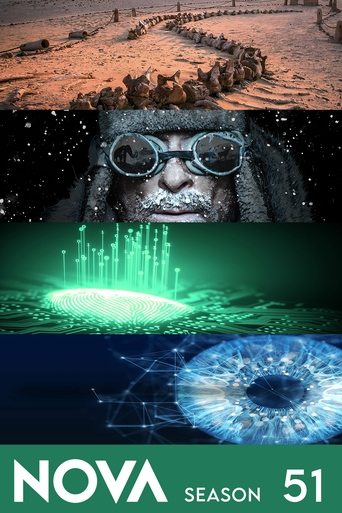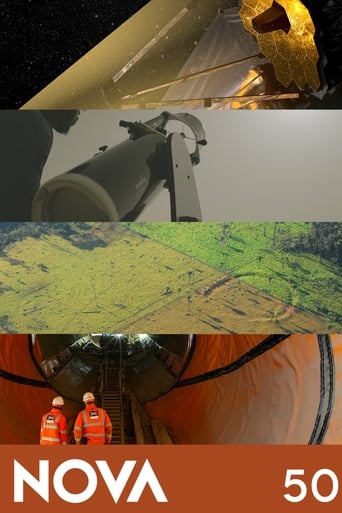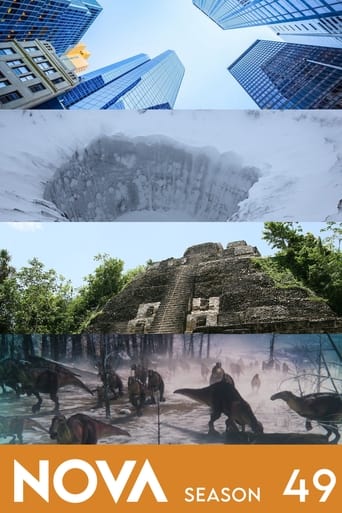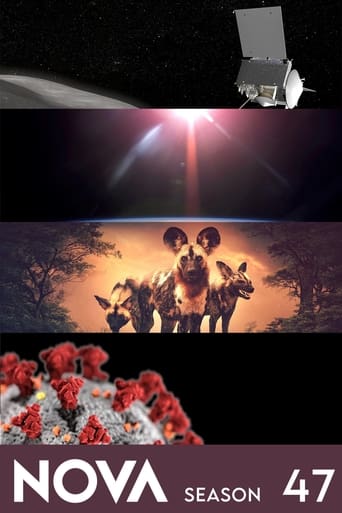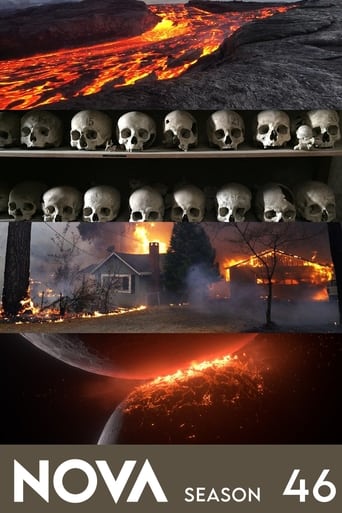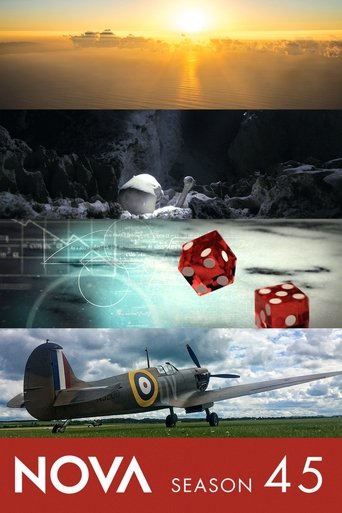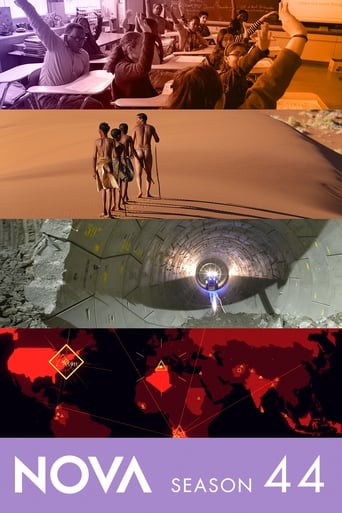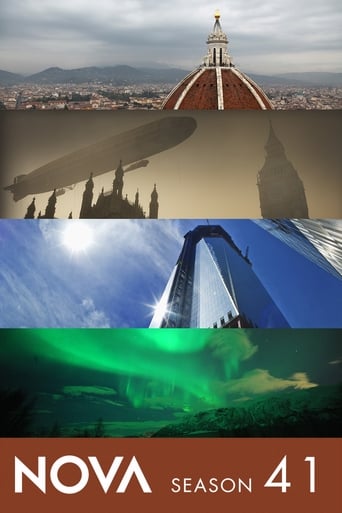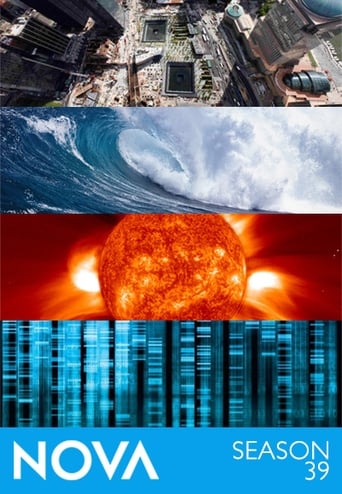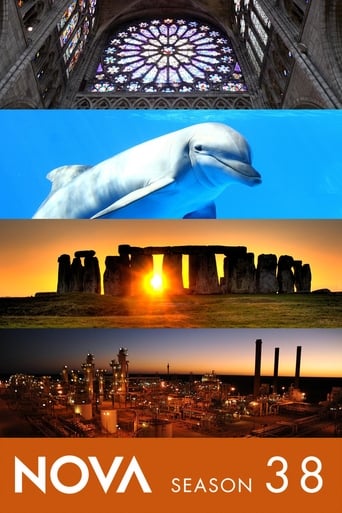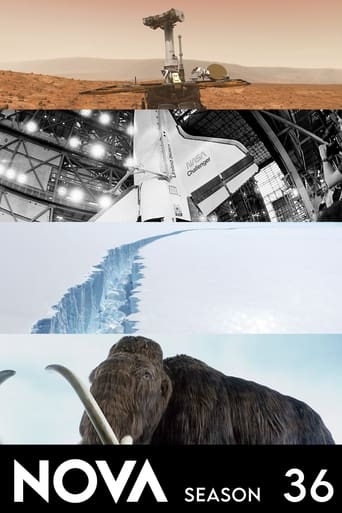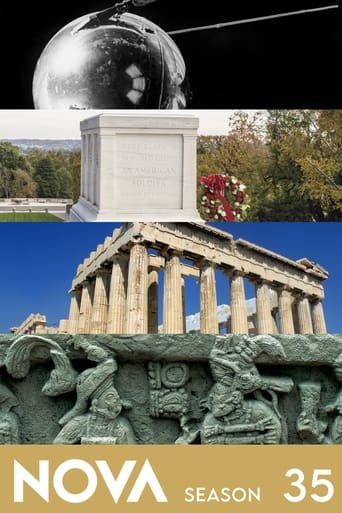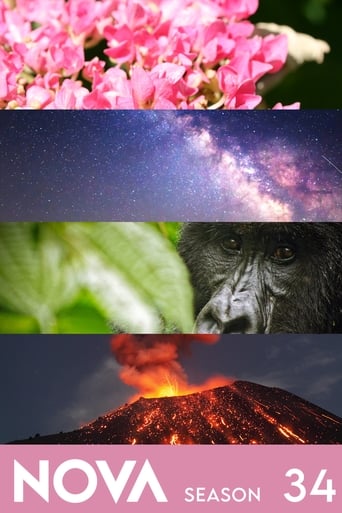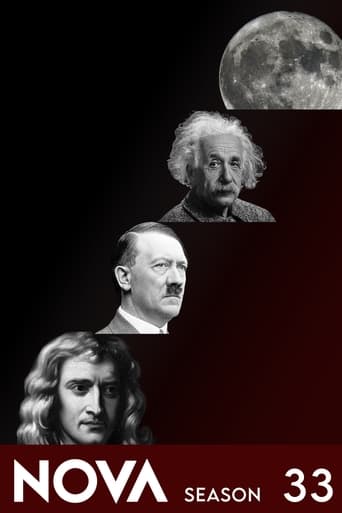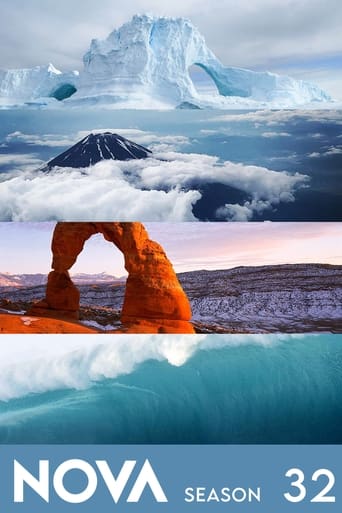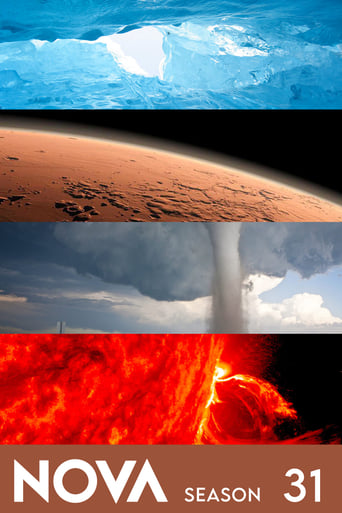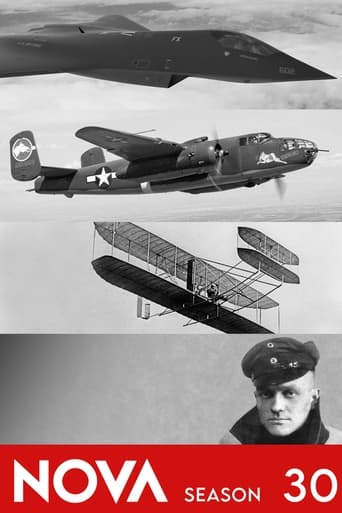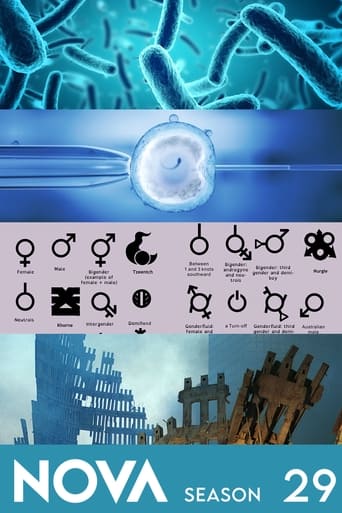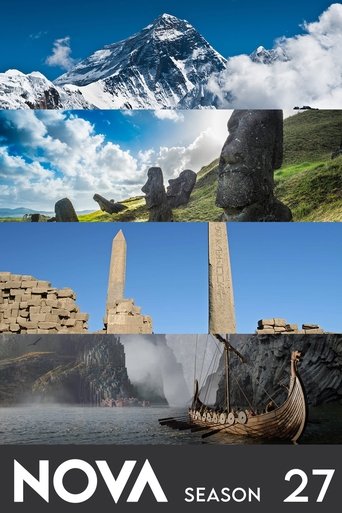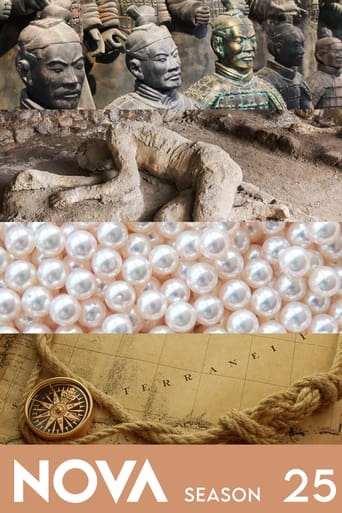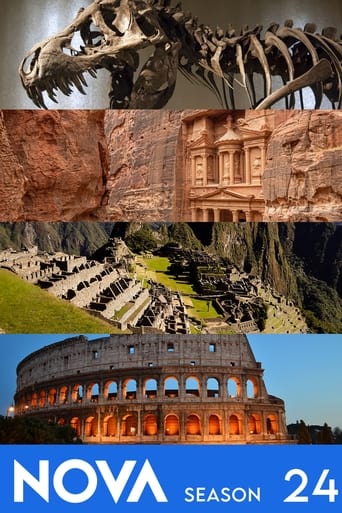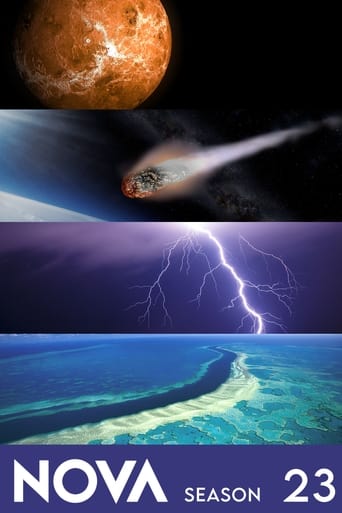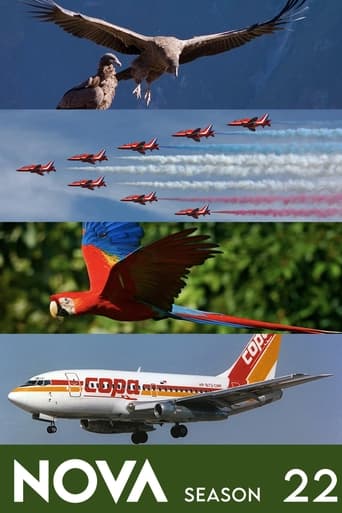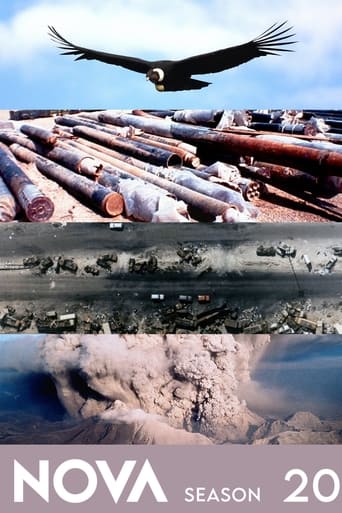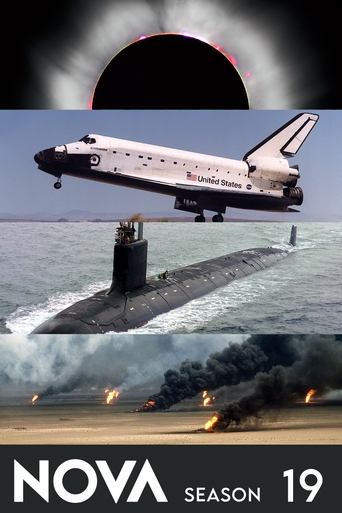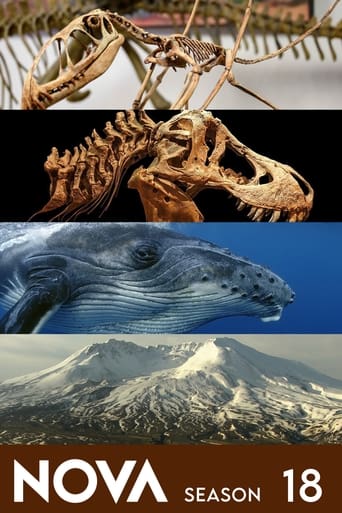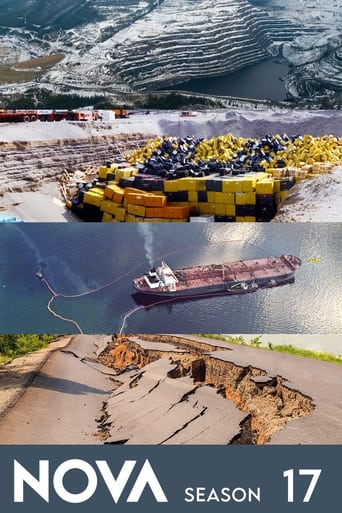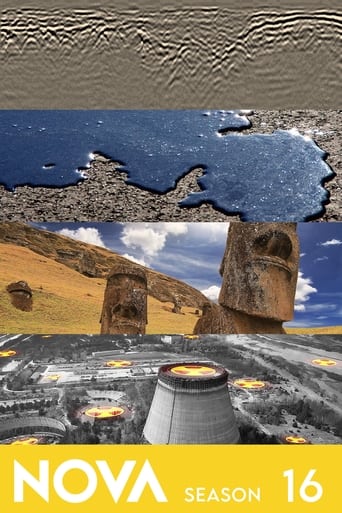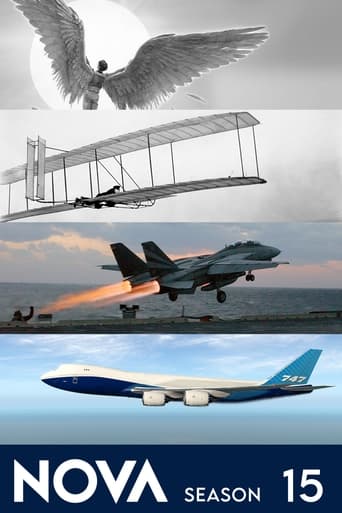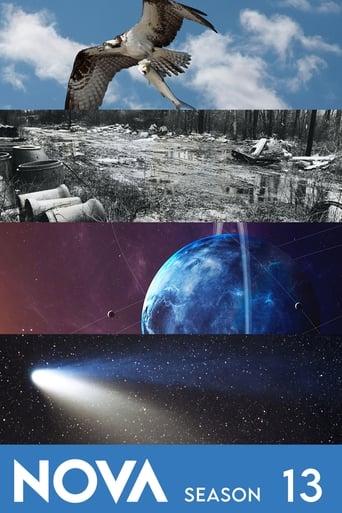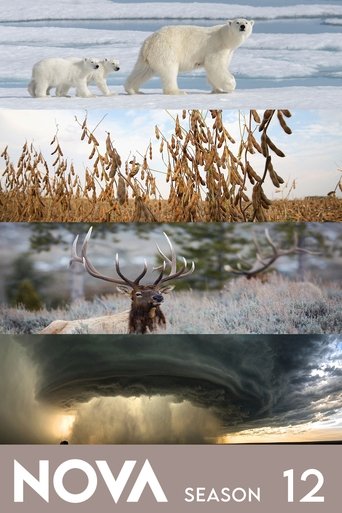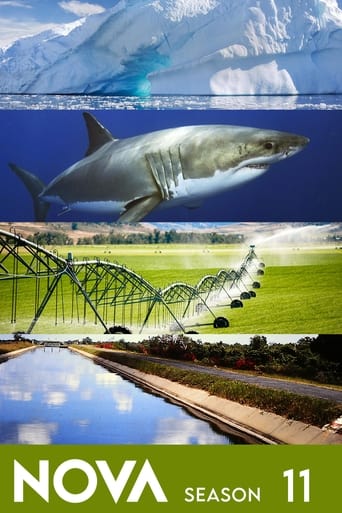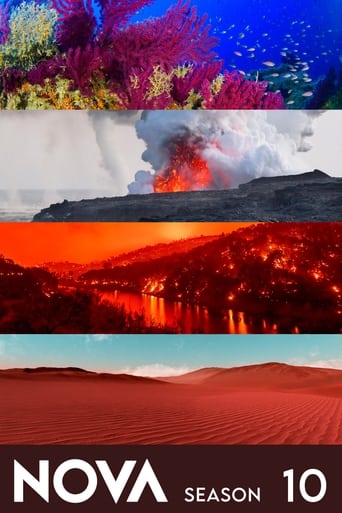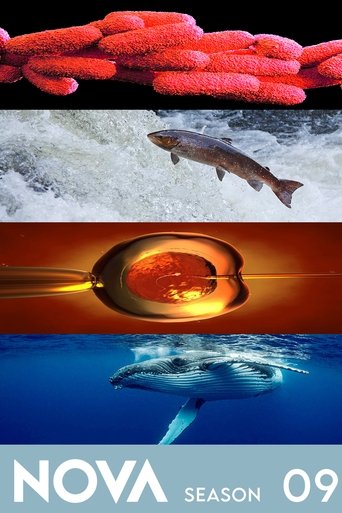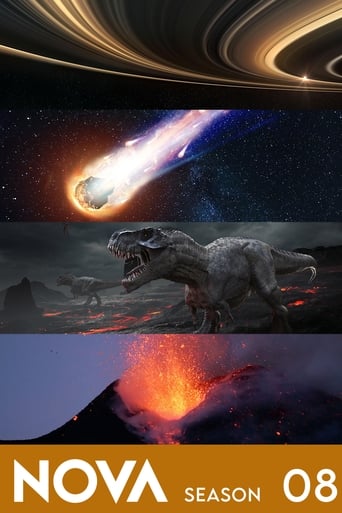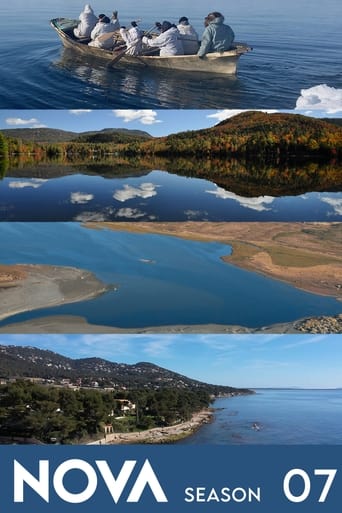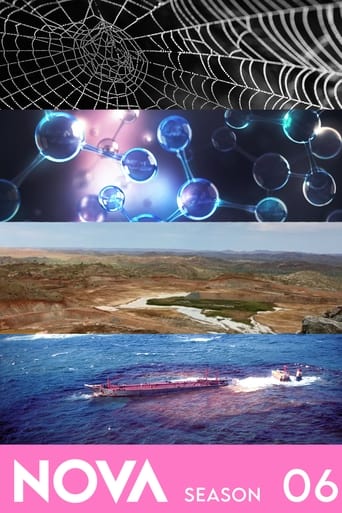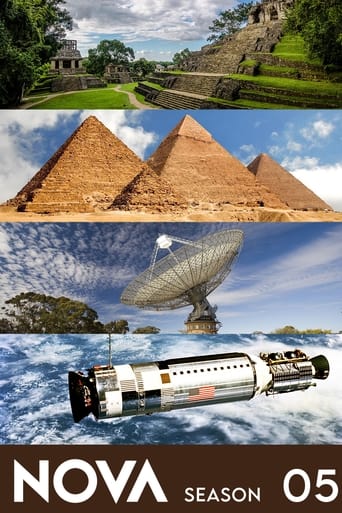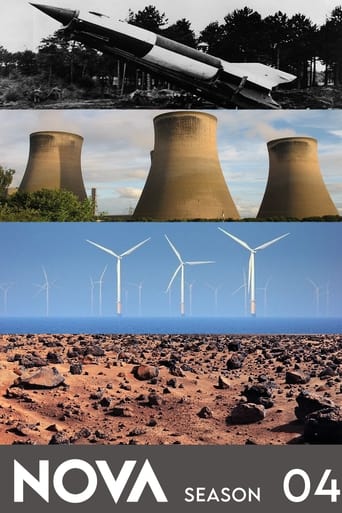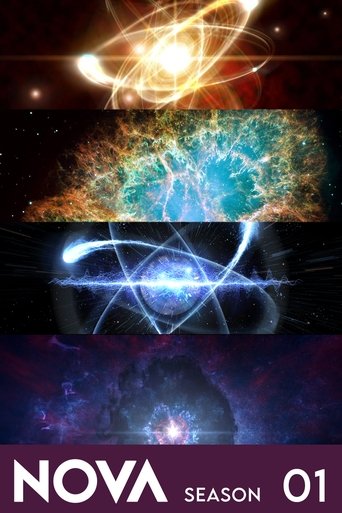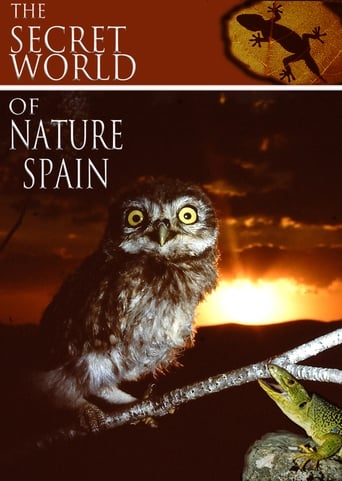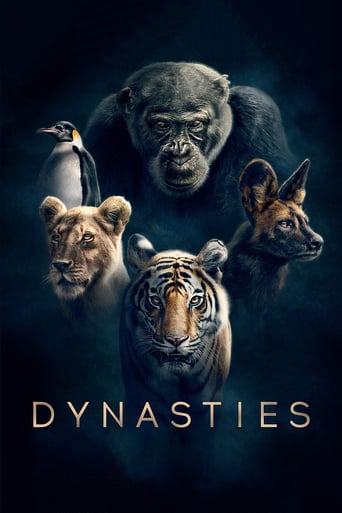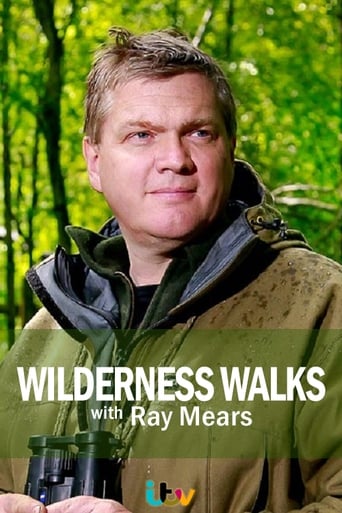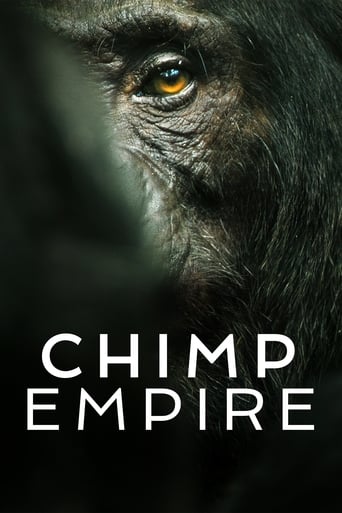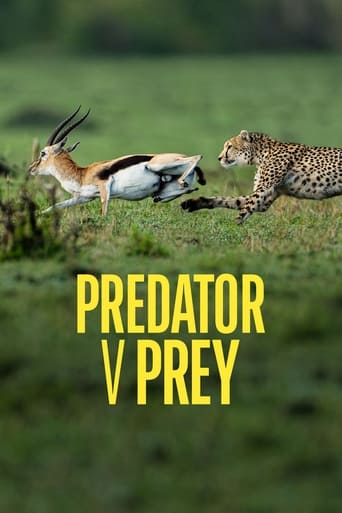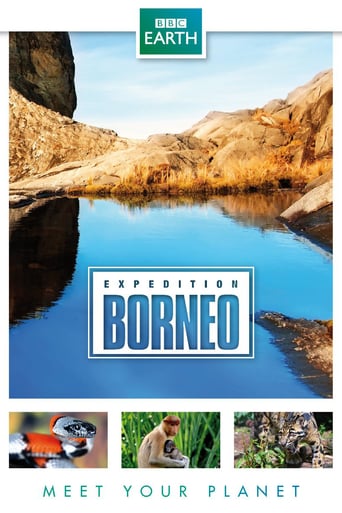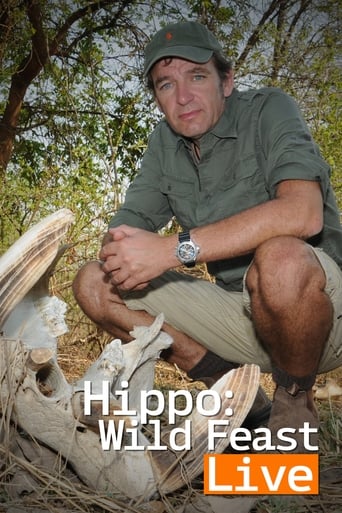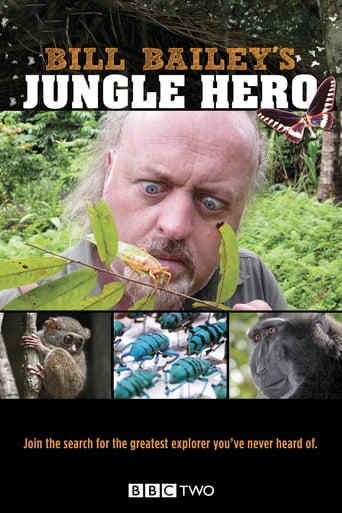NOVA Season 25
With 30 Day Free Trial!
NOVA
1974 / TV-PG
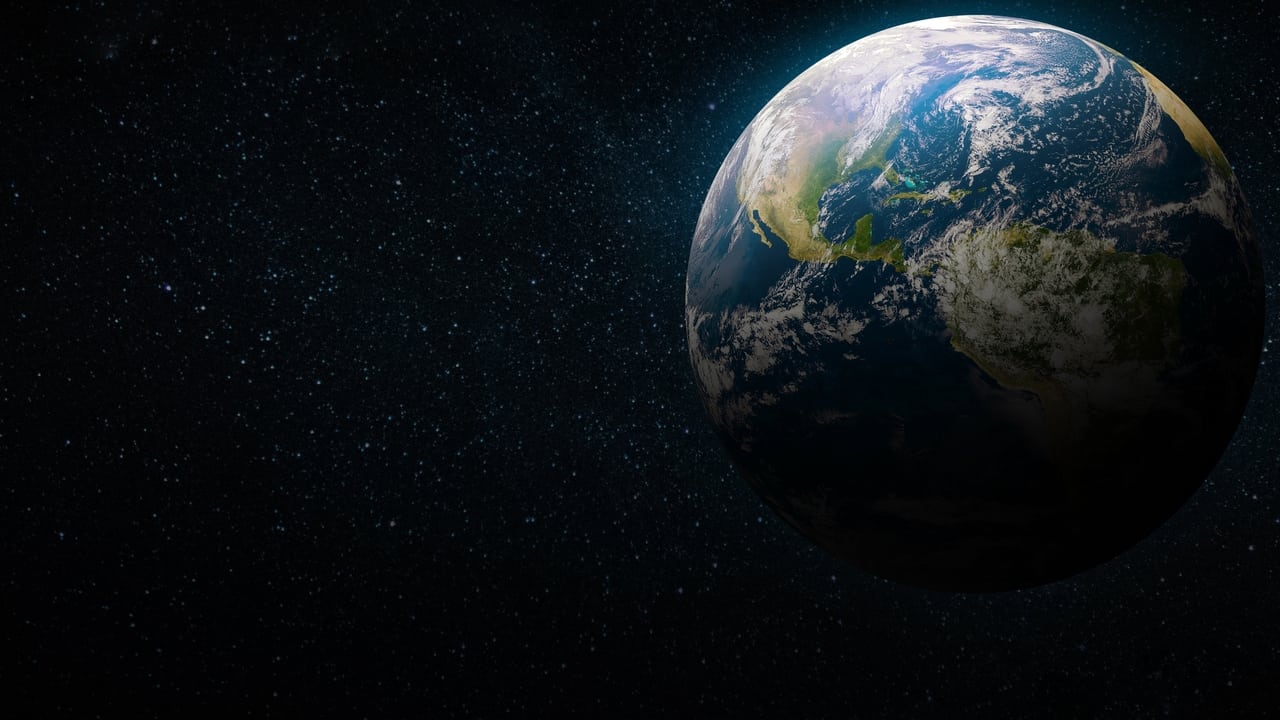
PBS' premier science series helps viewers of all ages explore the science behind the headlines. Along the way, NOVA demystifies science and technology, and highlights the people involved in scientific pursuits.
Watch Trailer
NOVA Season 25 Full Episode Guide
For centuries, man has risked both life and life savings to possess the pearl's beauty. Pure and perfect, glowing and dazzling, a pearl is actually a mistake formed when an oyster reacts to an irritant lodged in its shell. Go back to the late 18th century to meet Kokichi Mikimoto, who developed a technique for culturing pearls that's still used today. Travel to a Japanese oyster hatchery to see how technology is advancing pearl cultivation. Watch divers search for the immense pearls found in the world's largest oyster, the Pinctada maxima. See a strand of South Sea perfect pearls worth $2.3 million. And discover little-known facts as authors, zoologists, scientists and pearl experts reveal the pearl's wondrous history.
NOVA reports on new hope for victims of erectile dysfunction, also known as impotence. Among the promising therapies covered in the program are ones developed by Dr. Irwin Goldstein of Boston University School of Medicine and Dr. Harin Padma-Nathan, director of the Male Clinic in Santa Monica, CA. Actual cases are profiled, featuring men talking candidly about their problem—and going through treatment—on camera. Erectile dysfunction affects an estimated 52% of men between the ages of 40 and 70.
An unprecedented look at a dangerous predator, this is the second of three natural history programs hosted by Sir David Attenborough. Surviving virtually unchanged since the days of the dinosaur and found throughout the world, these remarkable creatures have the tools for survival. Long known as vicious hunters, new photographic techniques now allow us to see them cooperating with each other and protecting their families. From tiny babies hatching from the shell we see them grow into great beasts capable of standing up to the lion and bringing down a zebra.
Could the earth as we know it be about to drown? Huge ice sheets in Antarctica may be in the process of collapse, triggering a catastrophic rise in sea level that will inundate the most populous regions of the world. Battle extreme weather conditions in Antarctica with NOVA scientists as they gather data that will reveal new insight into the nature of global climate change.
NOVA follows an international team of archaeologists and spelunkers into the Rio la Venta Gorge deep in the Chiapas jungle of Central America. In a rugged canyon they find caves filled with startling remains of a people called the Zoque who lived hundreds of years before the Maya. The extreme inaccessibility and relative dryness of the caves has preserved rare artifacts including bones, clothes, rope, and jewelry. Moving downstream from the caves the team finds a legendary city hidden in a tangle of jungle vines. Evidence of the Zoque's sophisticated writing system and their practice of ritualistic cannibalism and child sacrifice is shedding new light on a little known civilization.
NOVA treks with a group of Himalayan climbers in their quest to reach the summit of Everest, along the way exploring in never-before-conducted tests how extremes of weather and altitude affect the human mind and body. Why do some people succumb so quickly to the ills caused by high altitude while others do not? Does exposure to extreme hypoxia—or lack of oxygen—take a lasting toll on the mind and body? Images of the brain scanned before and after the expedition may reveal truths about the physical traumas suffered in an oxygen-depleted environment, and give us new insight into why the tallest mountain in the world has claimed so many victims.
In this scientific mystery, NOVA ventures to the front lines of medical research where scientists are scrambling to understand the strange new ailment popularly known as "mad cow disease." Highly infectious and incurable, this disease has claimed the lives of nearly a million cattle in Britain, and a variant is responsible for a handful of deaths in humans. Millions more people may have been exposed, and now the race is on to determine if we are on the brink of another deadly epidemic like AIDS or Ebola. What scientists are finding is making them rethink many fundamental assumptions about epidemiology and may hold startling implications for public health in the future.
Tapping into the clearly demonstrated affection we all have for our pets, this program will offer an offbeat, sometimes humorous, sometimes sad portrait of pets, their owners, and the veterinarians who treat our beloved animals' ailments. From race horses under the knife for cancer treatment, to Manhattan hounds on Prozac, to anorexic boa constrictors, we will show how cutting edge veterinary medicine is saving lives, and draw viewers into the mini-dramas that unfold each day in homes, in zoos, and in veterinary hospitals across the country.
The race to build the world's first supersonic passenger airliner led to a massive espionage effort during the Cold War between the Soviet Union and the west. The Soviets started years behind the Concorde team, but espionage enabled Konkordski to beat Concorde into the air by three months. Now, NOVA reveals the cause behind the fatal Konkordski disaster at the 1973 Paris Air Show, which put the Soviet's work on the plane in a deep freeze. In a twist of fate, Konkordski is being resurrected in a NASA initiative to build the second generation of supersonic jets.
Perfectly preserved 3000-year-old mummies have been unearthed in a remote Chinese desert. They have long, blonde hair and blue eyes, and don't appear to be the ancestors of the modern-day Chinese people. Who are these people and how did they end up in China's Takla Makan desert? NOVA takes a glimpse through a crack in the door of history, to a past that has never before been seen outside of China.
Beneath the grassland plains of the Kalahari lies a hidden world of rare and exotic animals. By day, the Kalahari belongs to familiar predators and grazing animals. At night, the earth seems to release scores of seldom seen nocturnal creatures—Bush Babies, Brown Hyenas, Aardvarks and Fungal Termites—in search of food.
NOVA covers the latest efforts to be first to circumnavigate the planet non-stop in a balloon. NOVA's cameras are on board for all three attempts, including that of the long-shot underdog, American Steve Fossett, who rode high-speed winds solo from Missouri to a remote corner of India against incredible odds.
Viewers see what it's like to be overwhelmed by a sudden onslaught of "white death"—an avalanche. Avalanches are an escalating peril as skiers and snowmobilers push the limits into the back country. NOVA witnesses scientists getting buried alive in their attempts to understand these forces of nature.
The Lighthouse of Alexandria, one of the Seven Wonders of the Ancient World, guided sailors in the Mediterranean Sea for 16 centuries. NOVA follows an international team of archeologists, cartographers, topographers, and divers as they catalog and map thousands of previously inaccessible ancient artifacts.
Viewers are sidewalk supervisors for one of the most unusual construction projects in the U.S. - the building of the stunningly beautiful and eminently practical Clark Bridge over the Mississippi River. Contractors faced every obstacle in the book—and then some—to build this complex structure.
Sir David Attenborough hosts a never-before-seen look at one of the most misunderstood creatures in nature. Special photography, including infrared photography, exposes the secret life of the wolf pack.
In a tale of secrecy, obsession, dashed hopes, and brilliant insights, Princeton math sleuth Andrew Wiles goes undercover for eight years to solve history's most famous math problem: Fermat's Last Theorem. His success was front-page news around the world. But then disaster struck.
IRA terrorists and British bomb disposal experts tell behind-the-scenes stories of a a deadly cat-and- mouse game that pits ingenious IRA explosives officers against the most creative bomb squad in the world.
On the 50th anniversary of the first supersonic flight, Chuck Yeager relives his gutsy assault on the sound barrier and tells how it was done. Other top test pilots of the day—those who survived—describe the dangers, mysteries, and thrill of trying to fly faster than sound at the dawn of the jet age.
A famous brain surgeon struggles to save the life of a comatose child using a controversial new method of treating severe head injuries. In charge is Dr. Jan Ghajar, who gained notoriety in 1996 by successfully treating a woman who was savagely beaten in Manhattan's Central Park and expected to die. Dr. Ghajar believes the measure that helped save her life should be available to all.
Free Trial Channels
Seasons


























